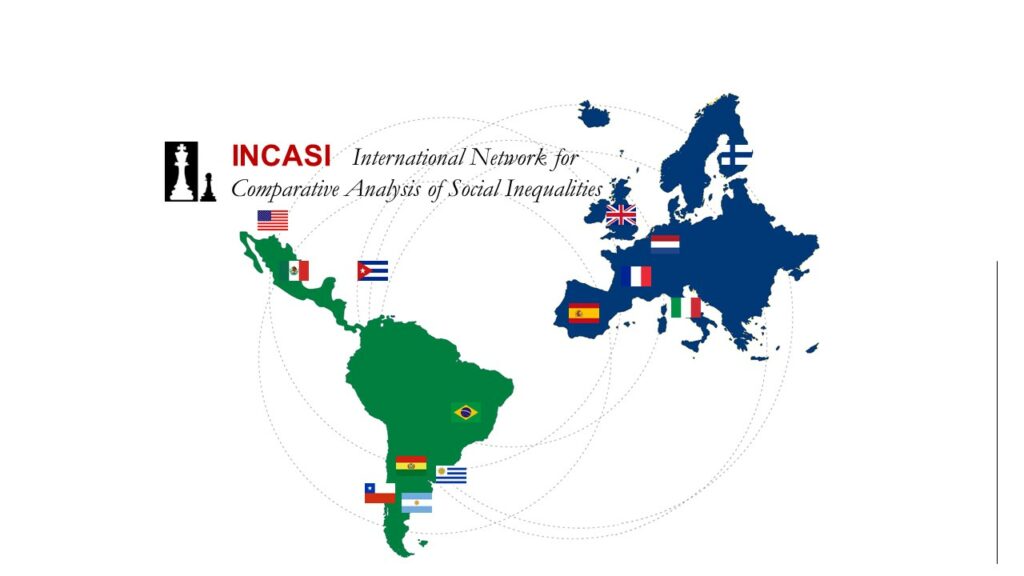
INCASI, International Network for Comparative Analysis of Social Inequalities, is an international research and training network between Europe and Latin America that was created in 2015 with a Horizon 2020 project of the European Commission: INCASI1, aimed at studying social inequalities in a comparative way.
We have just started a new project, which will run from November 2023 to October 2027, within the Horizon Europe, Marie Skłodowska-Curie Actions (MSCA), Staff Exchange programme, entitled: A New Measure of Socioeconomic Inequalities for International Comparison (INCASI2) aimed at building a new analytical model of socioeconomic inequalities in order to:

- To advance the understanding of the complex phenomenon of socio-economic inequalities by creating a new analytical framework at a comparative and interdisciplinary level.
- To build an innovative multidimensional measure (DYSIC: Dynamics of Socioeconomic Inequality in Comparison) that is more comprehensive and realistic in the comparative analysis of inequalities between Europe and Latin America and the Caribbean.
- Create the INCASI Living Lab as a space for the transfer and dissemination of research: organising seminars, elaborating diagnoses, contributing to the design of public policies and informed decision-making.

29 organisations participate: 14 European universities from 6 countries (Spain, Italy, France, the Netherlands, Finland and Great Britain), 11 Latin American and Caribbean universities from 7 countries (Argentina, Bolivia, Cuba, Chile, Uruguay, Brazil and Mexico), and 4 non-academic organisations (Latinobarómetro, ECLAC, CLACSO and LAPOP).
The project is coordinated by the Instituto de Estudios del Trabajo (IET) of the Universitat Autònoma de Barcelona, with Dr. Pedro López-Roldán as principal researcher of the network. Sub-coordination is provided by Dr. Sandra Fachelli from the Department of Sociology at the Universidad Pablo de Olavide.